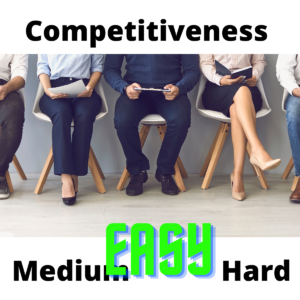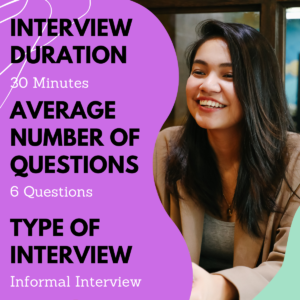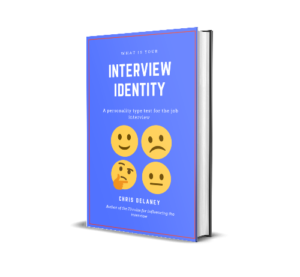Interview Answer for the Interview Question“Tell Me About Yourself”
An interviewer almost always starts off by asking you to tell him about yourself, like an overview about what kind of a person you are.
The question is, most of us get this question wrong and it’s actually the question that sets up the tone for the rest of the interview.
Depending on what you answer, the rest of the interview will carry on from there. What you don’t know is that there are actually a lot of secret and hidden meanings hidden behind every word you say.
This question is designed in such a way as to provoke you into speaking up about yourself. No, the interviewer is not interested in asking about your personality or life story. What she actually wants to know about are your work ethics and how you behave professionally, not to mention what achievements you’ve made and how much experience and dedication you have.
The art to pass any interview is to appear confident and dedicated in your work. You need to show promise and sell yourself. Here are a few ways you can rehearse and answer this question in a well-mannered way.
Set Up Your Own Coaching Business
Need Help to Pass Your Next Job Interview?

You can book an ONLINE Interview Coaching Session and/or a Mock Interview with an interview coach by e-mailing employmentking@gmail.com all you need is a webcam.
- Learn The 3 Step Process for Killer Interview Answers
- Double Your Interview Confidence with Specialised Techniques
- Mock Interview – Get Really Feedback on Your Interview Skills
Focus on your strengths
First things first, what are your core strengths? What is your experience, the level of your skills, your best traits, and your winning points?
Mention skills you’re proud of and use strong words to make yourself sound different from the tens of candidates competing for the same position.
Conduct a suitable S.W.O.T analysis about yourself because you’re sure to be asked about each category in general; your strengths, weaknesses, the opportunities you’re hoping for, and the flaws which you know you have and need to work and improve upon.
The interviewer would be on high alert looking for any trait which poses a threat to the organization in your interview, so it’s better if you know about them beforehand and try not to let them show.
Follow a Script
Just in case you don’t forget the important points you came up with, design a script and write all the things you wish to discuss yourself and the pattern in which you should bring them up ideally.
Don’t swallow your script whole and recite like a robot in your interview. You don’t want to appear memorized in front of your potential employer.
The pattern you come up with should have a systematic pattern about your past experience and your accomplishments.
You can cover your weaknesses in a smart way by stating the measures you took to overcome them and how they made you a better person. After that, you can tell where you are currently and your responsibilities, your skills, and your qualities which can be beneficial to the organization.
End it by a well–versed speech about what you wish to do in the future and how you’re looking forward to the company to help you achieve your goals. Give importance and the impression to the fact that you’re willing to stay long-term with the company and you’ll also commit to them and stay loyal.
FREE With Every Purchase of The 73 Rules for Influencing the Interview
Practice till you’re Confident
It is a well-known fact that a nervous candidate on average spends about forty-five minutes going over an interview. Think about it this way. The job you’re applying for may very well affect your whole life and decide where you go from there. So basically, you’re spending less than an hour practicing for a job which can decide your whole career.
Remember, you’ll only stay confident as long as you have had enough practice about what you wish to emphasize about yourself and how quick of a learner you are. You need to learn to manage how to cover your weaknesses by reiterating the ways which help you become a better professional and how best you manage the things under your responsibility. Stress about your previous successes like how you are extremely deadline-compliant and how you have benefited the areas you have worked on by giving your input to the field.
Think of yourself as a product that needs to be marketed and how you can make it sell. What do you do when you pitch a concept or idea? You highlight all the benefits of your strategy or product, cover up any gaps by talking smoothly about how they can be overcome, and then you make your clients value it by making them understand how much better their lives will be if they incorporate your idea and what they’re missing out on.
Even if your interview didn’t start off with this question, it’s still useful to practice and knows about your self-worth and what you have to offer to the company. It’s not just for this question, but it’ll also help you answer the other questions asked in your interview. The main focus in an interview is you.
About the Author:
Rebecca Katharine is pursuing her PhD degree from the well-known university of California. Rebecca is serving in the capacity of assistant professor in the same university and also provides dissertation writing service online for university-level students & private tuitions at the school level.
Interview Preparation Resources






